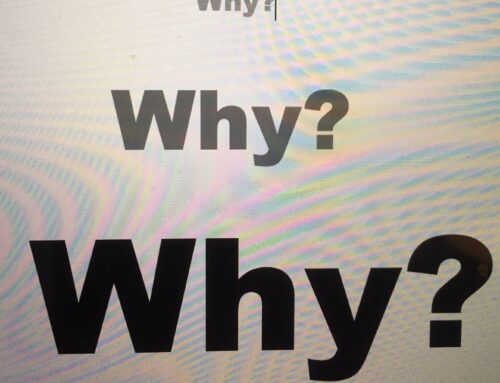
Why, then, are Christians not arguing more from reason than from faith?
In the case of Protestants, because they are guided by Luther’s dictum, sola Scriptura (only the Bible), and therefore tend to be suspicious of reason. In the case of Catholics, because they have been conditioned to avoid lines of thought that lack the Church’s imprimatur. (Ironically, the Church’s historic efforts to protect the faithful from the contamination of error are now preventing the faithful from effectively confronting such error.)
How can Catholics in particular, and Christians in general, change their focus in debating the various isms of the day? In two ways:
- By freeing our minds from unhealthy fear of contamination of false ideas. Can ideas harm us? Of course, but they are likely to do so when we are living our lives mindlessly or at least unreflectively, not when we are evaluating the ideas we encounter.
- By reading widely, particularly the works of serious authors outside our religious and/or philosophical perspective. Also, by becoming conversant with various viewpoints on timely controversies. Finally, by heeding Francis Bacon’s sage advice with whatever we read: “Read not to contradict and confute, not to believe and take for granted, not to find talk and discourse, but to weigh and consider.”
Let me offer a single example of the value of this approach.
In the late 1980s, while serving as a consultant to Singapore’s Curriculum Development Institute, I was browsing in a little bookstore and noticed a slender volume titled A Gentleman’s Code: According to Confucius, Mencius and Others. Confucius and his disciple Mencius, of course, lived centuries before Christ and therefore did not, indeed could not, offer a Christian perspective. That realization might have led me to walk away from the book on the assumption that there was nothing for a Christian to learn from pagans. However, I rejected that assumption, bought the book, and was richly rewarded for doing so.
Here are some excerpts, together with explanations of the value I found in them:
He who wishes to live a good life must first be conscious of any faults within himself. Only after struggling to overcome these faults will he attain goodness . . . A gentleman daily examines his personal conduct on three points: In carrying out the duties entrusted to him by others, has he failed in conscientiousness? In dealing with his friends, has he failed in sincerity and faithfulness? In all his dealings, has he failed to pass on whatever he has learned which may assist others? [This passage concerns what we Catholics call an “examination of conscience.” It offers a simple format for keeping us focused on our responsibility to our neighbors.]
Prayer is not confined to the moments spent in a temple but expresses itself in every thought, word and action . . . A gentleman is ashamed to let his words outrun his deeds. [This group of passages is a philosophical expression of the spiritual message Jesus offered centuries later in Matt:7:21: “Not everyone who says to Me, ‘Lord, Lord,’ will enter the kingdom of heaven, but he who does the will of My Father who is in heaven will enter.”]
If others do not respond to your love with love, look into your own heart; if others fail to respond to your attempts to teach and lead them, look into your own wisdom; if others do not return your courtesy, look into your own motives. In all cases, examine yourself whenever you fail to achieve your purpose . . . Also, Rectify the mistakes in others by first rectifying them in yourself. [These passages, and particularly the final line, are a more direct way of saying what Jesus said metaphorically in Luke 6:42: “Or how can you say to your brother, ‘Brother, let me take out the speck that is in your eye,’ when you yourself do not see the log that is in your own eye? You hypocrite, first take the log out of your own eye, and then you will see clearly to take out the speck that is in your brother’s eye.”]
When his chickens and dogs stray, a man has sense enough to go after them. Should he therefore not be even more diligent in pursuit if his heart strays from the path of truth and goodness? [These sentences remind me of Matt 18:12-13: “If any man has a hundred sheep, and one of them has gone astray, does he not leave the ninety-nine on the mountains and go and search for the one that is straying? If it turns out that he finds it, truly I say to you, he rejoices over it more than over the ninety-nine which have not gone astray.” But they go beyond the metaphor and refer directly to the straying of the human heart from truth and goodness. Reading this passage from a pagan writer deepened my understanding of Jesus’ message.]
The examples offered so far from Confucius and Mencius have parallels in Scripture. Here are some that have no such parallels, yet offer compatible themes and thus reinforce Scripture.
The feeling of compassion is the beginning of benevolence; the feeling of shame and self-reproach, the beginning of righteousness; the feeling of courtesy and modesty, the beginning of propriety; the feeling of right and wrong, the beginning of wisdom. These four beginnings are like the four limbs of man and to deny oneself any of these potentialities is to cripple oneself. [This passage enriches our understanding of Christian morality by illuminating the interrelationships of several virtues.]
When one meets with men of worth, one should try to emulate them. When one meets worthless men, one should look within and examine oneself for similar weaknesses and vices. [This practical advice is a useful aid in applying the Gospel message to everyday life.]
When our senses are exercised without thought and are thereby obscured by material things, we are led astray. Heaven gave us mind and senses. Guided by thought, let us use our senses in the right way. [This passage is especially interesting in that it anticipates and answers an error that was made two millennia after the time of Christ and has plagued western civilization ever since—J. J. Rousseau’s Romantic elevation of emotion over reason.]
Catholics and other Christians cannot convey the wisdom of our faith to unbelievers unless we enter their frame of reference, understand their points of view, and engage them honestly and respectfully. To do this we must overcome our timidity about using our God-given intellects.
Copyright © 2016 by Vincent Ryan Ruggiero. All rights reserved



